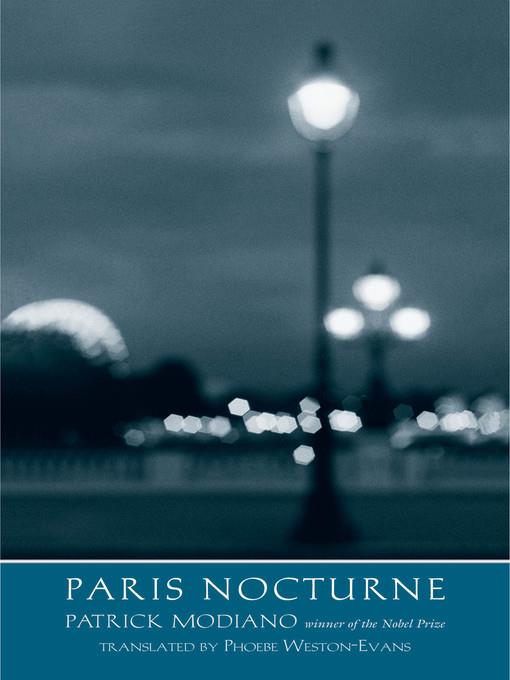
Paris Nocturne
The Margellos World Republic of Letters
کتاب های مرتبط
- اطلاعات
- نقد و بررسی
- دیدگاه کاربران
نقد و بررسی

August 24, 2015
Modiano was little known on the world stage until he received the Nobel Prize for Literature in 2014. This novel provides a superb and—at 160 pages—accessible entry to his writings. Its themes of memory and loss are emblematic of Modiano’s oeuvre. The story begins “late at night, a long time ago” when, as a teenager, the narrator gets hit by a car driven by a mysterious woman, Jacqueline Beausergent, in a fur coat. She squeezes his wrist in the police van before the narrator succumbs to ether, administered by medical personnel. When he awakes, in a strange clinic, Jacqueline has vanished and the narrator is met by a large man whom he recalled hovering by the scene of the accident. The man hands him an envelope of cash, and when the narrator inquires about who Jacqueline is, he’s told coldly that “as far as was concerned the ‘case was closed.’ ” The narrator’s search for Jacqueline propels the novel forward with the intensity of a noir. But Modiano is not writing mere pulp; the novel’s true center is the past’s pull, the way memories lay dormant for years only to explode “like a time bomb.” The Proustian smell of ether, recollections of a father, passing through neighborhoods in Paris, even a stray dog—in Modiano’s hands, the fog of the past lingers on all the artifacts of daily life.

Starred review from September 1, 2015
A young man crossing Paris's Place des Pyramides late at night is sideswiped by a car whose driver, a woman in a fur coat, stumbles out injured when the car slams into one of the square's surrounding arcades. Both are taken to the hospital in a police van, where the young man notes others arriving in handcuffs before he's put under ether. Waking up muddled in a different hospital, he finds the woman gone and meets a large, surly man he remembers from the scene of the accident, who gives him a wad of cash and a typed report absolving the woman of wrongdoing. Is the man being overly solicitous of the woman or covering up a crime? Who is she, anyway, and what happened to her? This being Modiano, there are no simple solutions ("I think there's something you're hiding from me" is one of the last lines of the book). But this being Modiano, we get a chilling portrait of everyday obsession as our hero looks for the woman and a sober and satisfying reminder of life's slipperiness in the split-screen interpretation of events. VERDICT Edgy and distilled, this 2003 novel advances Modiano's sense of ambiguity yet remains intriguing and readable.--BH
Copyright 2015 Library Journal, LLC Used with permission.

October 15, 2015
Boy meets girl, when the girl hits him with the car she is driving. At first glance, neither is hurt seriously. They wait in a hotel lobby; a stranger arrives: a detective? The boy isn't sure, but the stranger travels with them in the police van to the hospital. He is given ether, passes out, and wakes up in pain yet refreshed, imagining that he is in a mountain resort. But the girl is gone, and the stranger makes him sign something and gives him an envelope of cash. A conceitan accident, a young girl in a fur coat, a pay-offputs this film-noir plot in motion. The boy, the protagonist, is a lost soul and remains nameless. He looks for the girl, and for answers. This is classic Modiano. The setting is Paris, and the city seems not just to map but to be the boy's memory: Already at that time, I was convinced that a man without a landscape was thoroughly diminished. Of the Modiano books to appear this year (and since he won the Nobel last year, more are expected), Paris Nocturne is the most shapely, accessible and satisfying.(Reprinted with permission of Booklist, copyright 2015, American Library Association.)

























دیدگاه کاربران